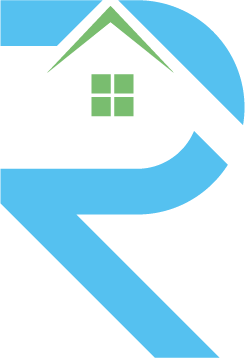Numerous alternative mortgage products and lenders, including banks, credit unions, and mortgage brokers, are available in Canada’s competitive mortgage industry. The mortgage type, the lender, and your individual financial circumstances might all affect the rates.
Factors affecting mortgage rates
- Bank of Canada’s policy rate: The Bank of Canada sets the objective for its overnight rate, which has an impact on the interest rates that banks and other financial institutions can provide. Mortgage rates may vary if this rate changes.
- Economic conditions: Aspects of the economy, such as inflation, GDP growth, and unemployment rates, can influence mortgage rates. Strong economic growth might cause rates to climb, while economic uncertainty could lead to a drop in rates.
- Global economic factors: Geopolitical and central bank actions in other nations can have an impact on interest rates globally, which can then have an impact on mortgage rates in Canada.
- Credit market conditions: When determining mortgage rates, lenders take their cost of borrowing into account. These expenses and, subsequently, mortgage rates may be impacted by the bond market’s demand for mortgage-backed securities.
- Competition among lenders: There are many lenders seeking for consumers in the competitive Canadian mortgage market. Because of this rivalry, mortgage rates may range amongst lenders.
Types of mortgage rates in Canada
Homebuyers in Canada have access to a number of different mortgage products. The most typical ones consist of:
- Fixed-rate mortgages: Mortgages with a fixed interest rate are available for a predetermined term, usually between one and ten years. Your monthly payments with a fixed-rate mortgage stay the same for the course of the loan, simplifying budgeting and protecting you against interest rate rises.
- Variable-rate mortgages (VRM) or adjustable-rate mortgages (ARM): These mortgages have interest rates that are subject to cyclical changes based on changes in the prime rate of the lending institution. Although lower initial rates may be advantageous to borrowers, they should be ready for any rate rises throughout the period.
- Hybrid mortgages: Mortgages with hybrid terms combine fixed and variable rate components. A 5/1 hybrid mortgage, for instance, might have a fixed rate for the first five years before switching to a variable rate for the rest of the term.
- Open mortgages: Open mortgages give borrowers more flexibility because they permit them to make additional payments or pay off the entire loan amount without incurring fees. They do, however, frequently have higher interest rates.
- Closed mortgages: Although they may have tougher conditions and fewer prepayment possibilities, closed mortgages often have lower interest rates.

Current mortgage trends in Canada
The COVID-19 pandemic’s negative economic effects contributed to relatively low mortgage rates in Canada. In an effort to assist the economy, the Bank of Canada lowered its policy rate to levels never before seen. Depending on the period and lender, fixed-rate mortgages might be had at rates between 1.5% and 3.0%. Variable-rate mortgages were offered at rates that were normally lower than fixed-rate mortgages, but they came with the risk of prospective rate rises in the event that the Bank of Canada raised its policy rate.
Homebuyers and homeowners in GTA, Barrie, Innisfil, London, Hamilton and rest of Ontario Region would undoubtedly pay attention to a steep discount online rate of, say, 1.95 percent. However, when the small print is examined, the majority of people will not be eligible at that rate. Also, keep in mind that sometimes, cheaper isn’t better!
That low rate might only apply to mortgages with quick closes, such as those that close in less than 60 days. Or, if the down payment is less than 20%, in which case mortgage default insurance is necessary to safeguard the lender. You don’t need mortgage default insurance if you put more than 20% down, but your rate will be higher because the lender lacks that protection.
And in many other cases, such as refinances and investment properties, the low rate won’t be applicable.
A effective mortgage plan includes other factors besides rate. A 0.1 percent difference in interest rates only results in an additional $25 monthly payment on a $500,000 mortgage. More money than that can be saved with the correct mortgage privileges. That is why I am continuously digging deeper.
Please be aware that mortgage rates can vary quickly in reaction to central bank policies and economic conditions. When you are prepared to begin the home-buying process, it is imperative to inquire about the most recent mortgage rates with lenders or financial organizations.
Tips for securing a favorable mortgage rate
There are steps you may do to get a good rate even though mortgage rates are influenced by more general economic factors:
- Keep your credit score high: To get a low mortgage rate, you must have a high credit score. Before you apply for a mortgage, make sure to pay your payments on time, pay down any debts that are still owed, and refrain from creating any new credit accounts.
- Shop around: Shop around to discover the best mortgage deal by comparing rates and terms offered by various lenders. Mortgage brokers can aid in your investigation of various choices.
- Consider the term: Depending on your financial status and risk tolerance, choose a fixed or variable rate. Mortgages with longer fixed rates may provide stability, whereas variable rates may be initially lower.
- Negotiate: Do not be afraid to bargain with lenders. If you have a solid financial profile, they might be ready to provide you a more attractive rate.
- Make a down payment in advance: The amount of your down payment may affect your mortgage rate. Putting down more money could result in a reduced interest rate.
- Consult a mortgage professional: You might want to consider getting guidance from a mortgage expert like me, who can walk you through the process and assist you in locating the best rate for your unique set of circumstances.
Numerous factors can affect mortgage rates in Canada, and those rates might alter over time. When purchasing a property in Canada, it’s crucial to be financially prepared, keep an eye on recent rate changes, comparison shop, and carefully weigh your options. You can navigate the complexity of the mortgage market and make knowledgeable choices about your home financing by working with me. Do all the research you can if you come across an internet rate advertisement that grabs your eye, but call me to talk thereafter. I’m here to help homebuyers save as much money as I can throughout their mortgage years!



